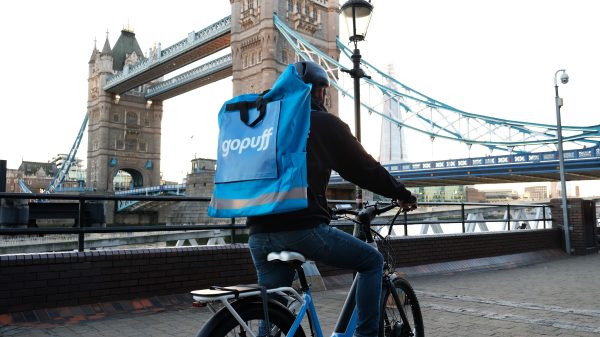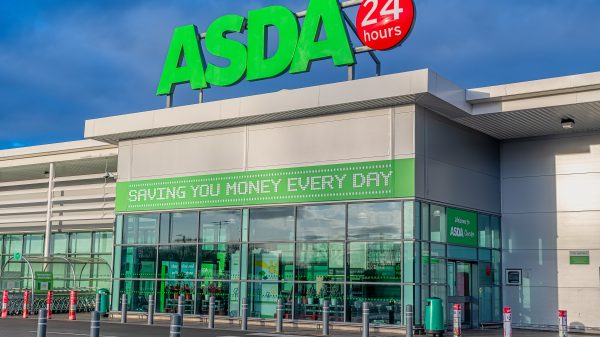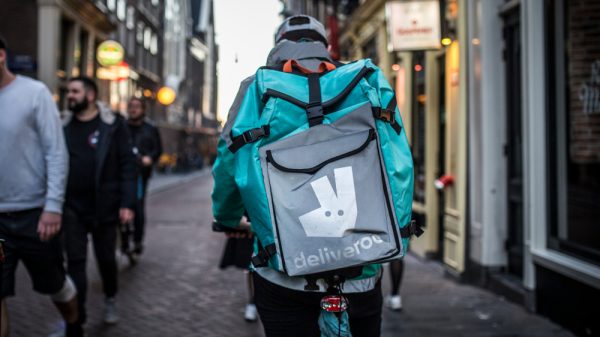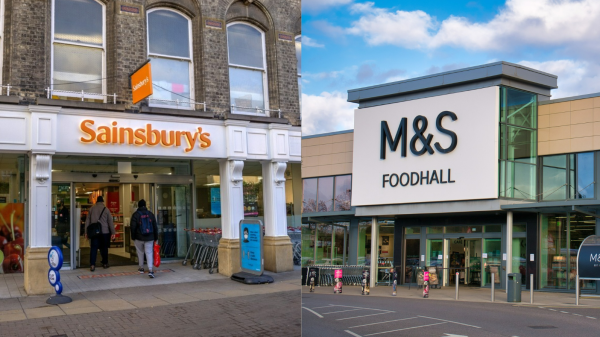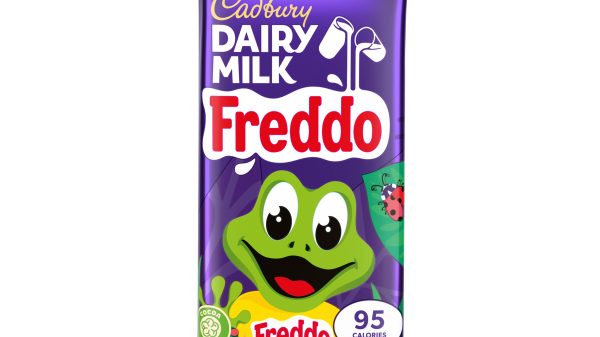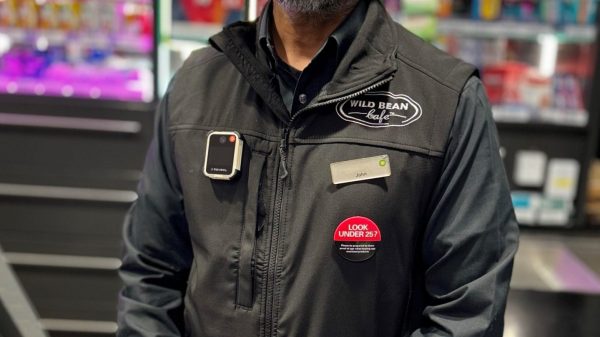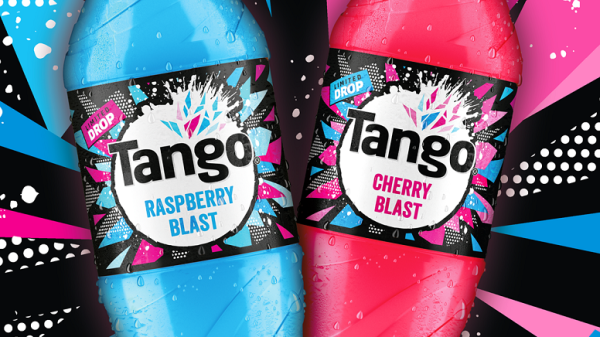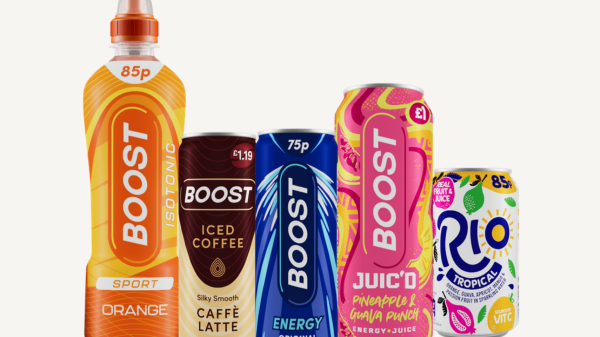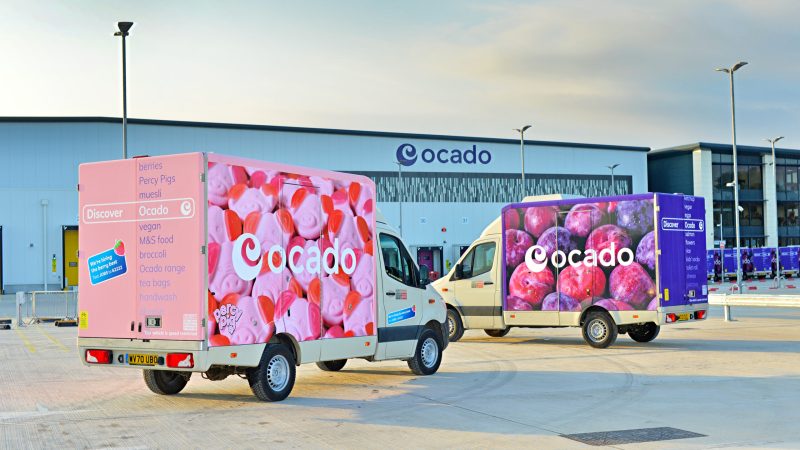As the third largest of the UK’s supermarkets, Asda differs from market leaders Tesco and Sainsbury’s in one key area: convenience.
Where Tesco Express and Sainsbury’s Local stores take pride of place in busy city centres or on the corner of residential neighbourhoods, Asda’s store portfolio has been restricted to traditional supermarkets or larger out-of-town superstores. That is, until now.
At the start of what promises to be an ambitious convenience store journey, Asda opened the doors to its second purpose-built Express store last week, laying the groundwork as it begins to build its presence in the sector.
With plans to open 30 of the smaller stores across the UK next year – rising sharply to 300 by 2026 – the rapid acceleration of Asda’s convenience roll out is its “number one priority to close market share”; part of the grocer’s long-term strategy to overtake Sainsbury’s in its bid to become the UK’s second largest supermarket.
According to owner Mohsin Issa, Asda’s growth strategy will see it providing customers with “more opportunities to shop at Asda closer to where they live or work”.
“With more than three quarters of the UK population visiting a convenience store in the last 12 months, the potential for growth in this market is significant,” he said.
Asda’s plan to capitalise on the growth of the convenience sector – which is forecast to grow by 13% to more than £50bn by 2027 – has seen it sinking millions of pounds into the project.
Looking after the the roll out of Asda’s new local format is its vice president of wholesale and convenience Steve Shirley, who has pinpointed exactly what the new format needs to offer in order to gain traction within the sector.
“We will be the cheapest convenience store in the UK,” he tells Grocery Gazette at the recent Tottenham Hale store opening. “Out of Tesco, Sainsbury’s and the Co-op, we already offer the best value by far.”
Focus on value and positioning in the market
Ultimately, Shirley’s strategy centres around bringing the convenience concept to customers in residential neighbourhoods or key commuter locations, particularly where there is not already an Asda store nearby.
“Our ambition is to become the convenience destination of choice by providing shoppers great value and a comprehensive and convenient range of products and services under one roof,” he says.
“We’re looking to go toe-to-toe with retailers who have been in this space for years and already have hundreds of stores performing well. So we have to make sure we’re delivering the goods – and so far our offer is pretty compelling.”
With a strong focus on keeping prices low for consumers, Shirley is determined that Asda Express will offer the best value of the main grocery convenience offerings, describing it as “by far the cheapest and best value convenience offer on the market”.
“We’re focusing on Asda value and convenience with a fantastic offer in a great locality, which is attuned to the local customer,” said Shirley.
“It’s not about trying to offer the same experience as a million pound store. We can’t offer roll backs across lines in the same way as we do in our larger stores – but what we have got is a really strong convenience offer and that’s what we’re focusing on.”
Understanding the local customer
Each store will stock around 3,000 products, including a comprehensive range of fresh, ambient and chilled groceries, as well as products from the retailer’s premium Extra Special range and a broad selection of beers, wines and spirits.
However, outside of this core product range – Shirley says there are about 2,600 lines that every convenience store has to offer – each Express store will be targeted to meet the needs of its local community.
“To build out the offer around that core, we look at consumer demographics in terms of a wide range of products,” he explains. “That might be anything from ethnic ranging to Halal meat to how broad the food to go range is.”
The Tottenham Hale store offers a vastly different proposition to the first Asda Express, which is located in a residential area in the West Midlands, catering primarily for smaller shops and store cupboards top-ups – although it does have a Leon self-service coffee station.
Just minutes away from a busy tube station, the new London store is focused more on commuters, offering a wider range of food to go and food for later options, with a new ‘buy 3 get one free’ meal deal option, a Tango Ice Blast machine and a Krispy Kreme counter.
“In Falcon Lodge the opportunity to sell Krispy Kremes just wouldn’t be high enough as it’s so residential,” Shirley explains. “It’s a completely different customer. By tailoring the stores to their local area we are able to make sure that we aren’t wasting any shelf space at all.”
In addition to the locally-focused food and drink offer, the new Express stores also provide a wide range of services designed to make them invaluable to local communities, with self-checkouts across the board and access to Asda’s ‘to you’ self-service Collect & Return kiosk wherever possible.
The free collect and return service is expected to be used by around 100 consumers a day, giving them easy access to Asda’s ecommerce offer without having to wait for a member of staff to be available.
“The Falcon Lodge Collect & Return service is already seeing around 100% more traffic than initially expected,” Shirley says, adding that the potential for the self-service system “cannot be underestimated”.
Where there is demand, stores will also include free ATMs and offer a rapid delivery service via Uber Eats.
The future of Asda Express
Between 12 and 30 sites have already been earmarked for future Asda Express stores, with a further 300 planned by the end of 2026 and a further 130 Co-op sites in the pipeline – although that will depend on CMA approval. With almost 500 sites lined up for the next three years, it’s an ambitious project.
“We’ve got two model stores now that we’re really proud of, but the reality is that we are in test and learn phase, so there will be things that we have got right and things that we have got wrong,” Shirley admits.
“But what we don’t want to do is rush. The blueprint of winning in parcels, having a hassle-free mission, winning in food to go, offering the best value – we just need to keep fine-tuning that as best we can.”
While the aim is that everyone in the UK is less than a five-minute drive away from an Asda store, Shirley also admits that the drive to gain market share and leapfrog Sainsbury’s remains the ultimate focus.
“We’ve got more than 400 superstores but until recently we had no convenience sites. Our mission is to be number two in UK market share – and the opportunity for us to do that is by upping our convenience offer,” he says.
“Convenience stores are our number one priority to close market share. Asda’s biggest challenge right now is reach – but we firmly believe that convenience will close that gap.
“And if we get that right we can do really well, really quickly.”

